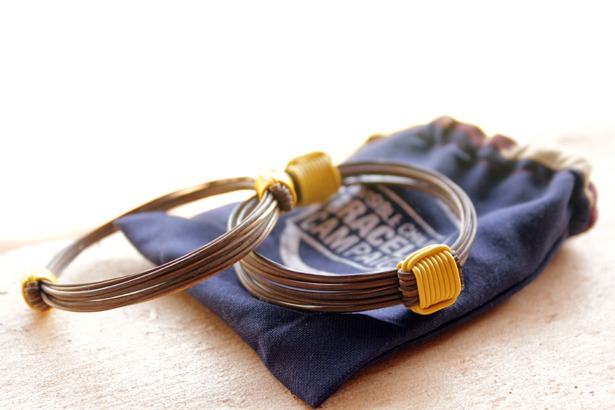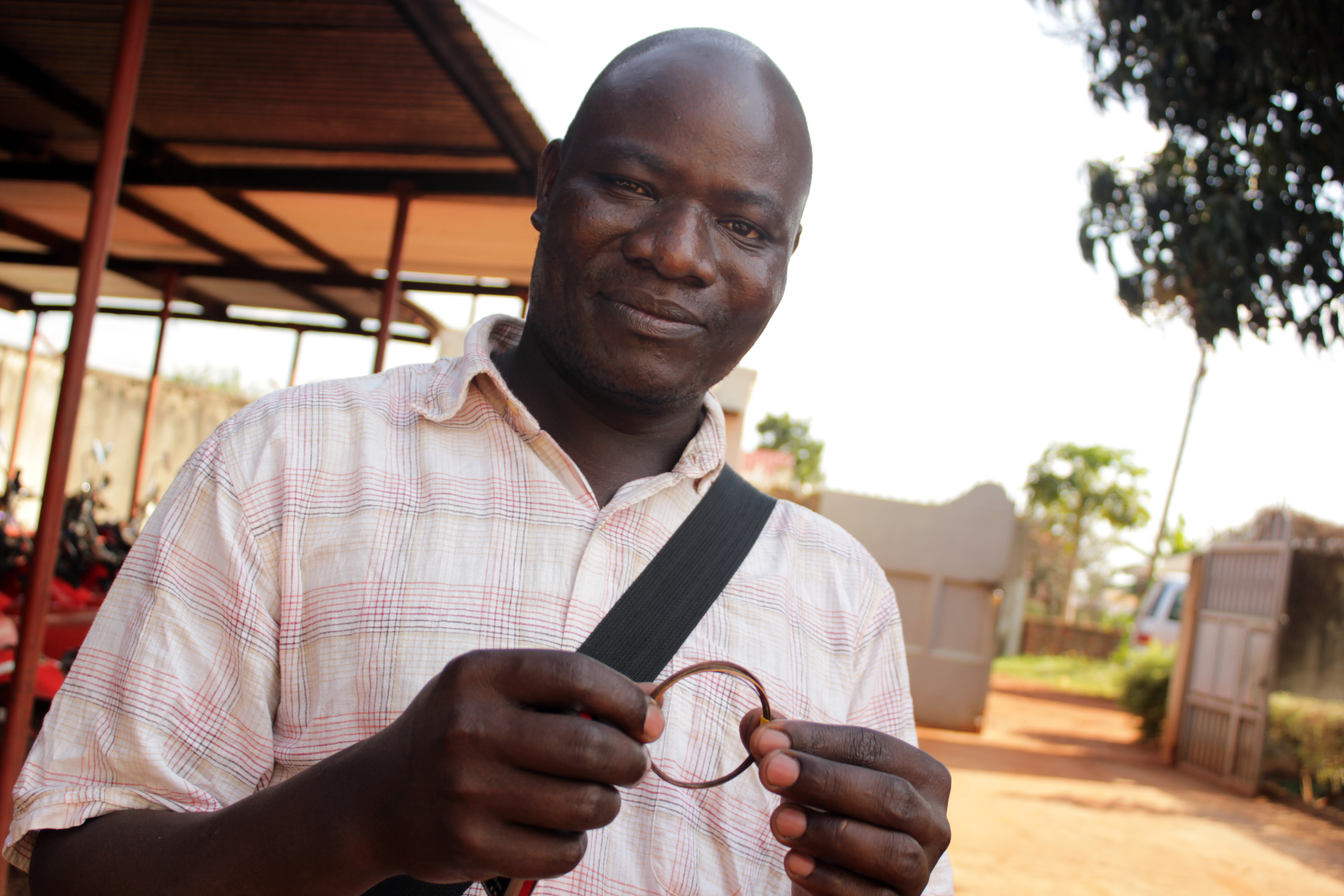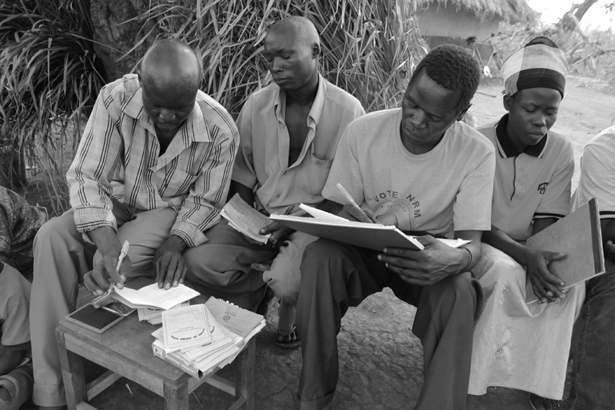In the Invisible Children Uganda (ICU) lobby display case, some small reed bracelets caught the eye of Mr. Owor Deogratius Fredrick, director of Rocola Robugeco Uganda Ltd. printing company in Gulu.
Fredrick remembered seeing his parents wear the simple, adjustable bracelets when he was a child, and they always held a fascination for him.

Back when many people in northern Uganda were living in displacement camps, ICU ran a bracelet-making program to provide an opportunity for livelihood to those living in the camps. Once the LRA left Uganda and camps were dismantled, the bracelet makers returned to their villages and became the first members of ICU’s VSLA program.
“I looked at them like they had powers when I was young,” Fredrick said, noting that he hadn’t seen any bracelets like them for years. “I was excited to see them again. I bought two for my children.”
Fredrick was contracted by ICU’s Livelihood team to print small booklets that are used by Village Savings and Loan Association groups. Community members use the booklets to track their savings and record loans. Fredrick prints the booklets for other NGOs as well. In fact, he’s been helping with development efforts in Gulu since 2005.
“When I came in 2005, it was not what it is now,” Fredrick, from Tororo in eastern Uganda, remembers having to travel to Gulu in a convoy for safety. “When you crossed Karuma [into northern Uganda], your life was now at the mercy of God.”
At the time, Fredrick saw development programs being delayed on the ground because if you wanted anything of quality printed, you had to go to Kampala. Recognizing the need, he took out a loan to start up a printing business that would be able to handle large orders with quick turnaround.
“Almost all the NGOs in Gulu, we have served them,” Fredrick said.
Over the past seven years, Fredrick has seen peace come to Gulu. While he may no longer see bracelets as a source of power, he does see the power that education has over time to transform the community.
“Get education, know what you want,” Fredrick says as an outline of what he sees as key qualities for young people who can rebuild their society. “These people who get education will be productive to help their own communities.”
He is hopeful that programs like ICU’s Legacy Scholarship Program will continue to promote education, laying the foundation for a better future in northern Uganda.
“Give it 10, 15 or 20 years…the results will come to be seen on the ground,” Fredrick said. “You’ve sown the seeds, you give it time to grow and see what these people will be.”


Think people should hear about this?